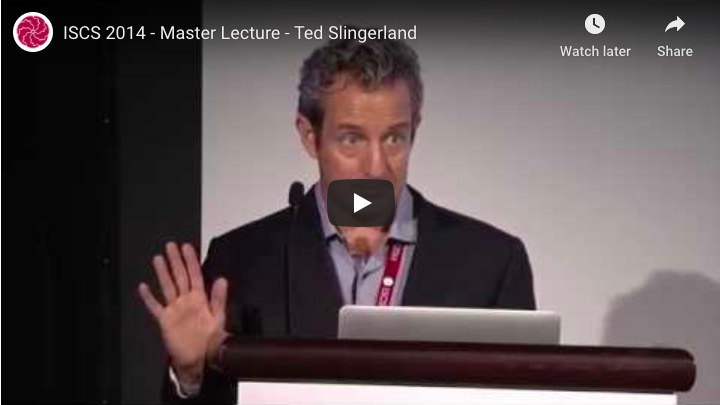Although the study of ethics in the Western academy has been dominated
for the past several hundred years by two rationalist models, deontology and
utilitarianism, there has been a resurgence of interest, especially in the past decade, in more embodied, practice-based approaches such as virtue ethics. In this talk, I will review evidence from various branches of the cognitive sciences suggesting that the virtue ethical model relies on amore psychologically realistic model of human cognition than its rationalist rivals, and therefore provides a more empirically plausible model of human morality, moral persuasion, and moral education. Drawing upon the specific example of early Confucian virtue ethics, I will further explore how Confucian models of emotional training, imaginative extension, and ritual and musical practice anticipate, and enjoy corroboration from, recent contemplative science research.

Edward Slingerland
Edward Slingerland, PhD, is a professor of Asian studies and the Canadaresearch chair in Chinese thought and embodied cognition at the University of British Columbia, where he also holds adjunct … MORE


